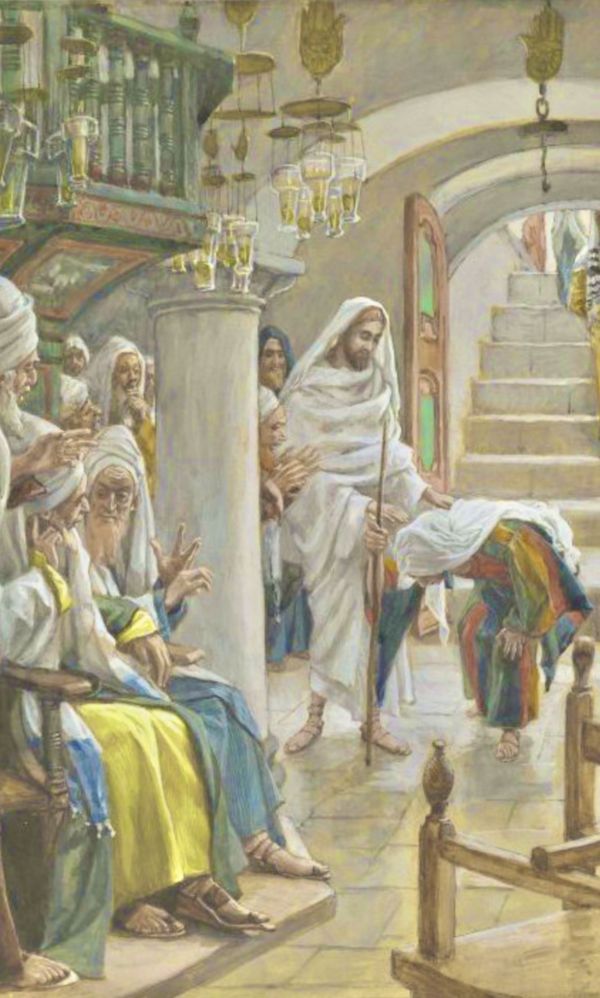Theatrical actors and neutrality
(Lk 13:10-17)
Old and new opinions or common ideas stand in the way of life that calls, that reveals something else, that ignites passions, that wants totality, and activates transformation.
As always, Jesus is present in "synagogue" not to make codified prayers: He is among his people to «instruct» (v.10). The Lord is educating his intimates, in a very decisive way.
In the place of worship the Master finds a subordinate humanity, a panorama of minimums still harassed by the ancient religious obsession - then folded in on themselves, weary, unable to lift their heads.
The spirit of weakness that that same environment injected precisely to the sick and troubled, made the faithful of the assembly [or the habituals in it] totally passive.
A curved existence, dragged at least worse; without horizons.
Christ’s Action extracts from the addicted crowd, frees from conformity and massification. He puts back on its feet the faltering ‘woman’, who takes to praise God seriously, with joy, immediately (vv.12-13).
Figure who although "participated" in the rite, and always among the people gathered together. But before meeting the Lord personally she did not glorify the Father in a real way - nor did she honour his very existence.
No joyful expression for the healing, on the part of leaders - accustomed to inoculating in the souls a soporific climate - indeed, only condemnation. Illustrious and distant authorities.
Individualistic negotiators of the power on duty, incapable of proximity. This was also for various interests of circle, doctrine, supremacy, and institutional prestige.
Then - in the common idea - it seemed that in legalistic or rubricistic terms the sanctification of the day dedicated to the Lord excluded any involvement, and even good works!
In addition to this unhealthy belief, even touching a wounded "flesh" was imagined could make impure!
In short, the spirit of the commandment that imposed the Sabbath rest [historically born for the protection of vast social, cultic, and identity needs] had been completely manipulated and overthrown.
The logic of the young Rabbi is opposed to protocols: only the neglect of the marginalized and enslaved dishonours God.
The only non-negotiable principle is the good of the real woman and man: this is the only key to reading the Gospels.
And the rite must celebrate precisely a fraternal life of welcome and sharing, of happiness, personalization, care, love.
The rest is for Jesus an unbearable comedy, from which his church leaders must stay away: «Theatricals» (v.15) would also define them today - otherwise - our Lord.
We are worth much more than oxen and donkeys (vv.15-16).
The relationship with God is feast, healing, salvation: all concrete - fruit of choice, even social.
Spirituality not empty, and any - where the little ones are forced to delegate their dreams to others.
[Monday 30th wk. in O.T. October 27, 2025]


